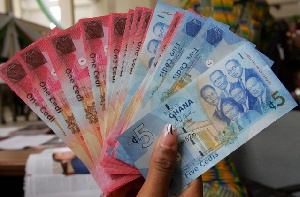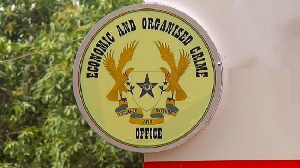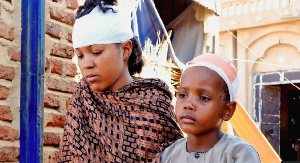The local currency is expected to continue its trend of appreciation against the US dollar after making some modest gains against the American green back last week.
The cedi remained unchanged at 0 percent against the American dollar, and according to Ecobank Research, “the broad stability amid increased US dollar supply, aided by positive investor sentiment, and central bank support has contributed to this feat”.
Ghana’s foreign reserves rose by 10.3 percent from the third quarter of 2017 to US$7.6 billion at the end of last year, about 4.3 months of import cover.
The September 2017 signing of a Cocobod loan agreement for US$1.3bn for the 2017/18 crop season contributed significantly to the growth in the reserves.
Ecobank Research noted that “fundamentally, positive sentiments over robust GDP growth and a trade surplus estimated at 2.3 percent of GDP for 2017 against a 4.2 percent of GDP deficit in 2016 have helped to provide some support to the Ghana cedi in 2017, and is expected to do so in 2018.”
As at Tuesday, January 30, 2018, the cedi was trading at GHc4.42 against one American dollar on the interbank market and GHc4.58 against a US dollar on the forex market.
Most analysts are confident that the local currency will do well against the American currency this year.
Investment bank, NDK Financial Services said in its report that “the outlook for the cedi, and therefore the risks to the inflation outlook, will be highly sensitive to economic growth prospects.”
It, however, noted that “Owing to the fact that Ghana is in debt distress, any further fiscal slippage could result in worst-case ratings by credit rating agencies. This could have a significant adverse effect on the value of the cedi.”
With the exception of Angola kwanza, most Africa countries’ currencies are doing better against the US dollar.
The Ghana cedi ended the year 2017 with a year-to-date depreciation of about 4.45 percent, according to Ecobank Research. This was better than the about 9.2 percent depreciation it recorded in 2016.
This was largely in line with BMI, research outfit of rating agency Fitch end-year forecast of GH¢4.52 against the US dollar.
The local currency did not experience much pressure during the Christmas festivity because the Central Bank injected some dollars into the Ghanaian economy.
Business News of Thursday, 1 February 2018
Source: thefinderonline.com













